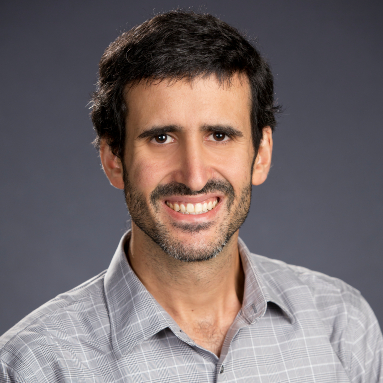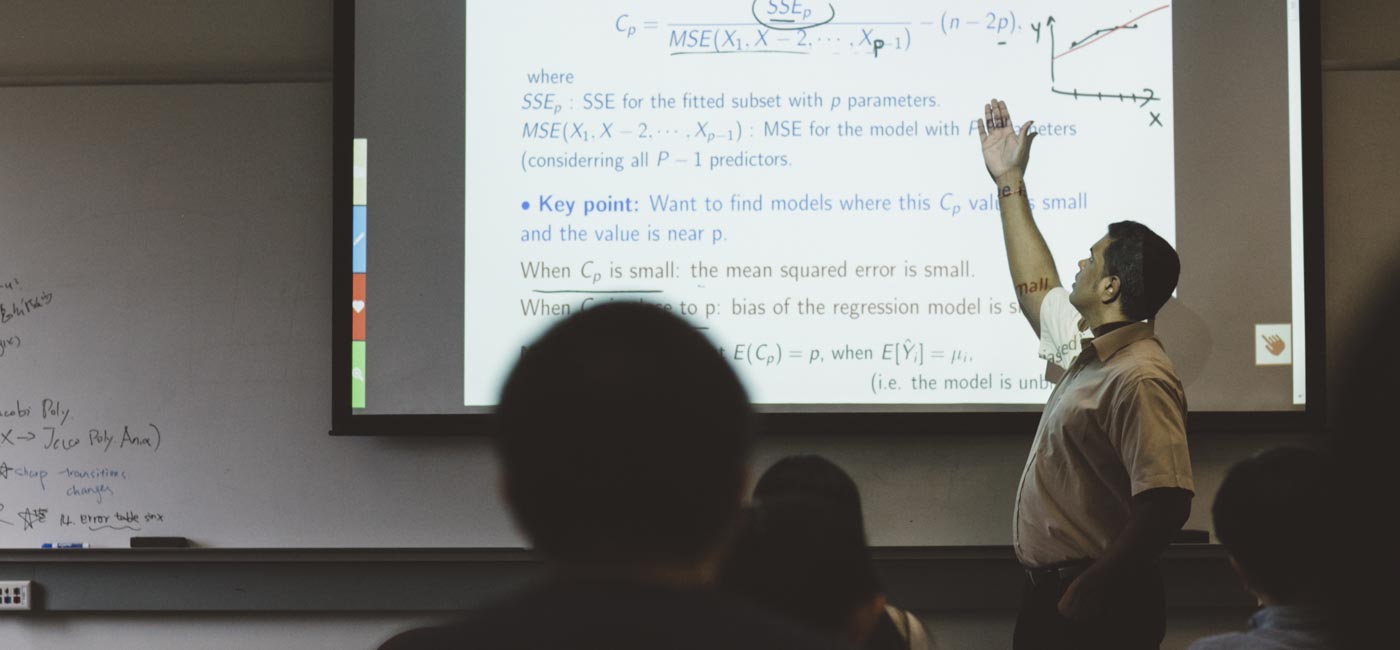Students pursuing a PhD in statistics tackle the deeper problems in statistics and apply them to real-world applications in academic settings and in industries as diverse as banking and healthcare.
As the need for skilled statisticians increases, WPI’s PhD in statistics offers a rigorous plan for students who enjoy the field’s challenges, who want to forge new paths, and who anticipate solving original problems. The program offers advanced coursework and research in statistics while imparting critical-thinking and problem-solving skills.
Students in this interdisciplinary program work closely with accessible faculty and often collaborate with researchers in data science, bioinformatics and computational biology, engineering, and business. Students demonstrate their competency at gathering vast amounts of numerical facts (data), evaluating it, and translating or presenting the findings and results for applications in various fields.
The knowledge gained in this program provides real-world opportunities for careers in data-driven industries. Companies use enormous amounts of data to help develop more targeted products. The healthcare industry has great need for statisticians who can help develop new drug technologies or conduct clinical trials. Students are supported in research that will solve puzzles and patterns in big data.

Curriculum
Students entering the program with a BS must successfully complete 90 semester hours of graduate work (students with an MS must complete 60 semester hours). At least 30 semester hours must be spent in dissertation research. Full-time residency at WPI is required for at least one continuous academic year of graduate work.
- General Courses (credited for students with MS), 30 credits
- Research Preparation Phase, 24-30 credits
- Research-related Courses or Independent Studies, 18-24 credits
- Extra-departmental Studies, 6 credits
- Dissertation Research, at least 30 credits
Faculty Profiles






Refer a Friend
Do you have a friend, colleague, or family member who might be interested in a WPI graduate program? Click below to tell them about our programs.
Research
Our PhD program is highly competitive, and it offers an excellent foundation for future scholars and leaders in statistics. Through rigorous and comprehensive training and research experiences in statistics and related areas, you’ll be ready for leadership roles in academia, industry, and government. WPI’s program requires you to sharpen your critical-thinking and problem-solving skills to address statistical challenges in data-related researches and applications.
WPI’s PhD students work alongside faculty and other PhD students and are involved in diverse projects, both fundamental and interdisciplinary, in these areas:
- Bayesian statistics, survey sampling, and small-area estimation with applications to health, economic, and agricultural data
- High-dimensional statistical learning for big data, including financial time series and spatial statistics
- Biostatistics, statistical genetics and genomics, and statistics in biomedical and clinical studies
- Order restricted inference and meta-analysis
The strong interdisciplinary nature of our PhD program also provides students with enormous possibilities to interact with researchers in other disciplines, including basic sciences, business, data science, bioinformatics, and biomedical engineering.
Have questions?
WPI's dedicated graduate student support team can help.

Getting Involved
Graduate students find a welcoming, diverse, and active community at WPI. The vibrant graduate student government acts as the voice of grad students, whether they are taking courses on campus or from a remote location.
After Graduation
Professionals with expertise in quantitative and data analysis skills are in high demand in industry, government, and academia. The increasing need is expected to continue as more data are produced globally that require interpretation and application. A PhD in statistics opens many opportunities to use your skills to help achieve results that matter. Our PhD graduates in statistics have secured employment at organizations such as Merck &, Co., and Veristat, and at educational institutions including Chapman University, University of Houston, and University of South Carolina.
Become a Leader in Statistics Now
Get ready to elevate your career and take on advanced leadership roles that tackle challenging statistics problems. Our graduates are in-demand and pursue careers in data-driven industries. Maybe you’re wondering how long does it take to get a PhD in statistics or is a PhD in statistics worth it? We are here to answer any questions you may have.
Pursue a PhD in Mathematical Sciences Instead
Are you more interested in pursuing a career in mathematical sciences where you can dive into discrete mathematics, combinatorics, graph theory, and more? Consider our PhD in mathematical sciences and work with our vibrant community of expert faculty members. You’ll collaborate with researchers in the department and across our campus to solve complex problems.
Earn a Master’s in Applied Statistics First
Do you first need to gain the theoretical foundations of applied statistics and how to gather and analyze large amounts of data? Our master’s in applied statistics enables students to tailor a path that aligns with their career goals in a range of areas like biostatistical application, big data analytics, and even social policy analysis. Maybe you’re looking for a broader master’s degree to apply your expertise in a range of industries like computer science, business, or engineering. Our master’s in applied mathematics provides students a broad background in mathematics including numerical methods, modeling, materials science, and optimization. If you’re interested in using sophisticated mathematics to solve complex problems in business and industry, consider earning a master’s in industrial mathematics. You’ll build a foundation in numerical methods, modeling, and conduct an industrial professional master’s project.
Gain a Foundation with a Minor in Statistics
If you’re an undergraduate thinking about other applications for statistics because your major is in a different discipline, a minor in statistics will give you the understanding and the tools you need to complete work that uses advanced statistical methods. With this minor, you’ll learn how to design reliable studies and surveys, analyze research results, and model complex data and apply that knowledge to the field you’re in. And if you’re a current undergrad exploring career options in statistics and mathematics, WPI’s career outlook page for statistics and mathematics will give you a broad look at the field.


